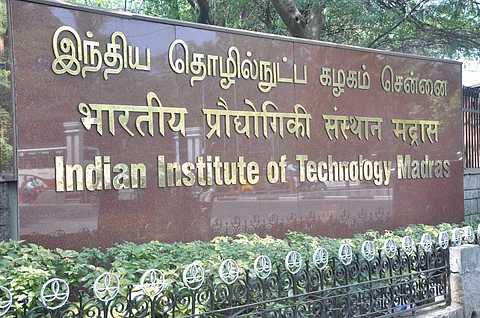

Researchers from IIT Madras, Vellore Institute of Technology, Chennai and London's Queen Mary University have joined hands to develop a revolutionary air sanitisation system aimed at preventing the spread of the coronavirus and TB bacterium.
The Royal Academy of Engineering (RAENG), UK will be the chief sponsor for the project and air sanitisation solution provider Magneto CleanTech will be the sole industry partner.
According to officials from the top educational institutions, the aim of this joint research is to develop a robust low-cost bio-aerosol protection system to contain airborne diseases in indoor environments for the Indian subcontinent, a geography known for its high population and heavy urban pollution.
Employing Ultraviolet-C' radiation, the project is envisaged to develop an experimental proof-of-concept of a revolutionary air filtration system.
This system has a strong potential to increase the effectiveness of eliminating viruses and other airborne pathogens while also reducing maintenance cost as compared to the available filters, an important proposition for developing countries such as India, they claimed.
"Various UVC solutions are present in the market but they lack the technical design rigour needed to ensure appropriate airborne disinfection and inactivation. This has led to consumer confusion and mistrust. The projects' goal is to develop a solution that is extensively verified and tested from both theoretical and practical perspectives, and finally the safety made visible in a consumer-friendly manner ensures live performance of the system," said Abdus Samad, Professor at IIT Madras.
With the involvement of Magneto CleanTech, testing and implementation of this system will be done with real-time applications in various Indian environments. It is expected that this project, when successfully implemented, will benefit nearly 10 crore people in the Indian subcontinent.
"We are delighted and indeed honoured to be a part of this elite global research team. Given our longstanding focus on air quality engineering and air sanitization technologies, this was just the right platform for us to contribute where we are looking at development of a revolutionary product that has potential of ensuring health and safety of global populations, benefitting the world, " said Himanshu Agarwal, CEO of Magneto CleanTech.
The consortium will also be supported by Professor Clive Beggs of Leeds Beckette University as the project consultant.
"Designing any practical system needs a multidisciplinary team. Eventually we got experts from electronic and electrical system designers, microbiologists, fluid system designers. SARS-Cov-2 spreads quickly and new variants are evolving as we have seen in delta and other variants. We need to proceed with the right technology to contain, disinfect it. Our solution will work, in general, for air disinfectants for indoor conditions," said Eldad Avital from Queen Mary University of London.
Nithya Venkatesan, Professor at VIT Chennai, said, "One very important aspect is that we will seek to establish guidelines for how to use this air cleaning device in concert with other policies of cleaning, ventilation and social distancing. We will account for the features found in high density population centres in India and similar developing countries. This will be achieved through advanced fluid dynamics modelling, risk analysis and co-operation with national and local stakeholders."
